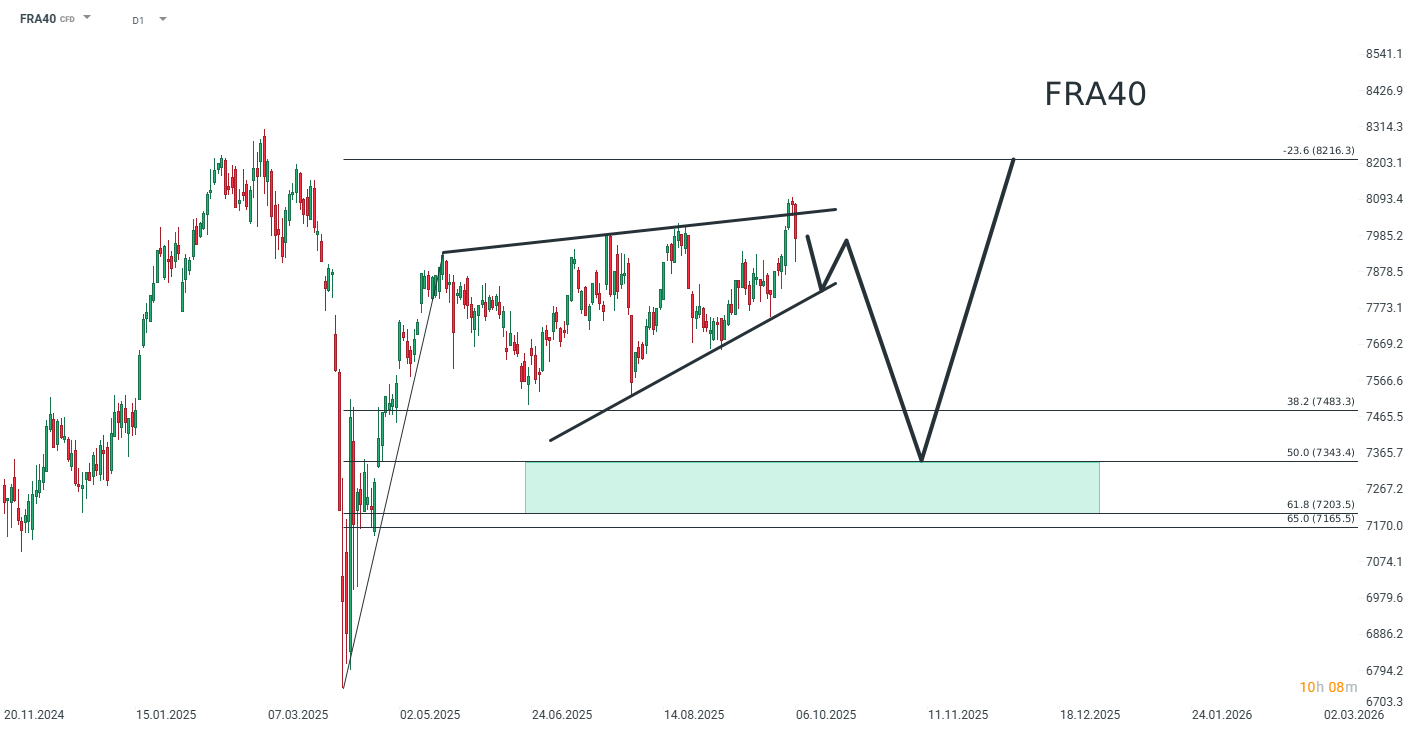-
The resignation of Prime Minister Sébastien Lecornu exposes deep political dysfunction and unprecedented instability in France.
-
France faces a systemic debt risk with €3,345 billion owed, rising interest rates, and a fragile market environment exacerbated by investor distrust.
-
The nation teeters between political paralysis and financial vulnerability, with the credibility of the state and confidence in democracy now at stake.
-
The resignation of Prime Minister Sébastien Lecornu exposes deep political dysfunction and unprecedented instability in France.
-
France faces a systemic debt risk with €3,345 billion owed, rising interest rates, and a fragile market environment exacerbated by investor distrust.
-
The nation teeters between political paralysis and financial vulnerability, with the credibility of the state and confidence in democracy now at stake.
The resignation of Sébastien Lecornu from his position as Prime Minister, accepted this morning by Emmanuel Macron, is not just a routine governmental episode. It signals a deep dysfunction in French political life, an executive branch that is faltering, and a collective confidence that is eroding. In just a few days, the newly appointed government has imploded under the weight of criticism and contradictions.
This sudden departure, at a moment when the country is seeking a clear budgetary and social direction, plunges France into a political instability unprecedented since the start of Emmanuel Macron’s second term. The president now faces a wall: urgently appoint a new Prime Minister, dissolve an already fragmented National Assembly, or assume — at least symbolically — responsibility for the current deadlock.
The consequences are immediate. Ministerial trips are canceled, decisions are suspended, and financial markets, uneasy, are already punishing the situation: the CAC 40 dropped nearly 2% this morning, with French banks on the front line. The executive appears paralyzed, while public opinion watches, weary, a political spectacle that has become almost routine in its permanent crisis.
Tensions on French debt: a systemic risk
France finds itself in a delicate position: high budget deficits, political instability, and growing investor distrust create a toxic cocktail. As of September 2025, public debt reached €3,345 billion, or 114% of GDP, the highest in the eurozone. Deficits remain concerning: 5.8% of GDP in 2024 and 5.4% projected for 2025.
Interest rates have been climbing since 2024: the 10-year government bond rate now stands at 3.60%, a critical barrier that must not be crossed for fear of an attack on French debt. The CAC 40 is also suffering from the tension, despite its internationally oriented components. The French 10-year yield surpasses those of Spain, Portugal, and even Greece; the 30-year yield reaches 4.45%, levels not seen since November 2011. The spread with Germany hits 0.87, a peak since 2012, exacerbated by Fitch’s downgrade of the sovereign rating and persistent political instability. Every government attempting to reduce the deficit has been ousted, raising fears that by 2026-2027, the cost of public debt could exceed the national education budget (€66 billion versus €64 billion).
In this context, caution is essential. Fortunately, the technical market environment remains relatively stable, supported by U.S. indices bolstered by the volatility index (VIX) and a steadily declining dollar. But in the event of a reversal and through contagion effects, the consequences for French financial markets could be catastrophic. This is the pivotal moment investors fear the most.
A political turning point?
Whatever political path is chosen, the conclusion is clear: Sébastien Lecornu’s resignation is no accident, but a symptom of a system at the end of its rope, unable to regenerate except through crisis. Governments fall, majorities crumble, citizens grow disillusioned… France teeters between political paralysis and collective distrust.
Today, it is no longer just the fate of a Prime Minister at stake, but the very credibility of the state and confidence in democracy. Suspended on a presidential decision, the nation finds itself on the edge of a precipice, with debt threatening to turn a political shock into a systemic storm. France, too big to fail, must now prove that it can still stand tall.

Unsurprisingly, markets reflect this tension: the CAC 40 opened down 2%, trapping numerous investors worried about further declines toward 7,360, or even 7,220 points. Source : xStation.
Antoine Andreani, Head of Research at XTB France
Daily Summary – Wall Street Rally Driven by Powell’s Promises
Cocoa Prices Stabilize Ahead of Processing Data: Has the Negative News Been Priced In?
US Open: American Indices Rally on Anticipated End of Fed Balance Sheet Reduction
Bank of America, Wells Fargo, and Morgan Stanley: Q3 2025 Earnings Overview
The material on this page does not constitute as financial advice and does not take into account your level of understanding, investment objectives, financial situation or any other particular needs.
All the information provided, including opinions, market research, mathematical results and technical analyses published on the website or transmitted to you by other means is provided for information purposes only and should in no event be interpreted as an offer of, or solicitation for, a transaction in any financial instrument, nor should the information provided be construed as advice of legal or fiscal nature.
Any investment decisions you make shall be based exclusively on your level of understanding, investment objectives, financial situation or any other particular needs. Any decision to act on information published on the website or transmitted to you by other means is entirely at your own risk. You are solely responsible for such decisions.
If you are in doubt or are not sure that you understand a particular product, instrument, service, or transaction, you should seek professional or legal advice before trading.
Investing in OTC Derivatives carries a high degree of risk, as they are leveraged based products and often small movements in the market could lead to much larger movements in the value of your investment and this could work against you or for you. Please ensure that you fully understand the risks involved, taking into account your investments objectives and level of experience, before trading, and if necessary, seek independent advice.


